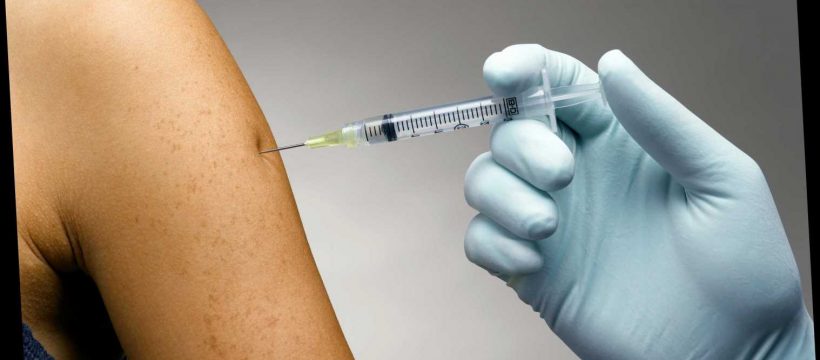A NEW jab could transform the lives of millions of people suffering eczema, doctors hope.
The new therapy will be given to hundreds of patients after initial trials showed 'hugely exciting' results.
It's the first jab of its kind and targets the most common form of the condition, atopic eczema, which is common among kids.
One in five kids and one in 12 adults are plagued by eczema, which can be an incredibly debilitating condition.
It causes persistent inflammation of the skin, commonly on the face, arms and legs and leaves sufferers with red-raw, dry and cracked, itchy skin.
Current treatments include drugs like ciclosporin and methotrexate, but they can cause nasty side effects including nausea and high blood pressure.
The new drug, called etokimab, works by targeting a part of the immune system called IL-33, which is known to fuel inflammation.
One dose does the trick
Prof Graham Ogg, an immunologist at Oxford University, who lead the study, said just one dose appears to work.
"This clinical trial is the first time we've looked at how blocking IL-33 can help patients with atopic dermatitis," he said.
"We have found they experienced significant improvement in their symptoms after a single dose."
The initial trials were carried out with 12 patients taking part.
Now, Prof Ogg's team are planning much larger clinical trials to test the new drug on 300 eczema sufferers.
We have found they experienced significant improvement in their symptoms after a single dose.
Among the first 12, all showed a reduction in their physical symptoms – at least halving their score on the scale of disease severity.
And, the results were still seen after 29 days for 10 of the subjects – 83 per cent of those taking part.
Prof Ogg said: "These results are only very preliminary and we need to be cautious.
"But we're currently testing the therapy in a larger double-blind randomised trial in people with atopic dermatitis and we look forward to seeing the results."
'Exquisitely specific'
He said the new treatment is promising because it is "exquisitely specific" in what it targets.
And he added the effect on the immune cells had been "surprising" – and might help carve out new treatments for other immune diseases.
The molecule IL-33 is released by damaged skin and encourages immune cells to the site, causing inflammation.
Blocking it stopped the influx of immune cells – preventing inflammation.
The participants received a placebo injection and then a week later the jab of etokimab.
Four days after each they were given small injections in the skin to challenge the immune system – a placebo in the left arm and a house dust mite to which they were allergic in the right.
The next day, samples of fluid and cells were taken from the site.
Reduces inflammation
After the etokimab treatment there were fewer neutrophils – a type of immune cell involved in inflammation.
Future research could investigate if treatments targeting IL-33 might also be beneficial for other immune diseases that can be associated with neutrophils.
Prof Ogg said: "We've been studying the role of IL-33 in human skin for nearly 10 years.
"We are pleased in this first human trial in patients with atopic dermatitis, we have confirmed the IL-33 pathway appears to be a therapeutic target in its own right.
"Doing experimental research in humans in crucially important if we are to make advances in treatment.
"I'm very grateful and humbled by all the patients who've generously contributed skin and blood samples over the years to help us to understand the underlying processes that contribute to their atopic dermatitis – our research completely depends on such support."
The study, published in the journal Science Translational Medicine, is the first to show it could be treated by destroying IL-33.
The trial was funded by the company AnaptysBio Inc. and led by researchers funded by UKRI's Medical Research Council (MRC).
Source: Read Full Article

